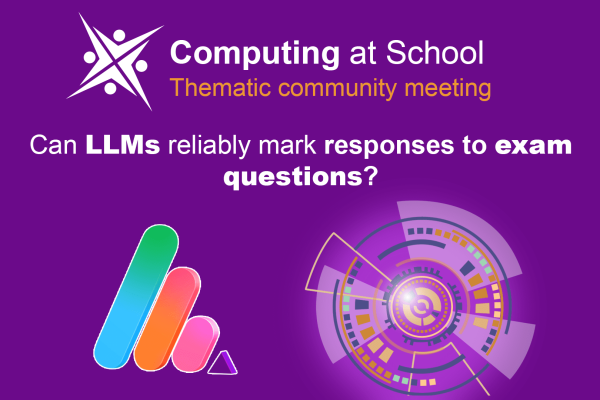🔵 Introduction – The Shift in Exam Preparation
Exam preparation has changed.
Teachers aren’t just helping students revise, they’re managing overwhelm, anxiety, and rising expectations. And while AI tools for exam preparation are everywhere, most still focus on content, not clarity.
“We don’t need another app that says what went wrong,” one head of department said. We need one that helps students understand why, and helps us catch it sooner.”
That’s the shift: from overload to insight. From more to meaningful.
In this blog, we’ll explore the key trends shaping exam preparation today, and how Teepee supports teachers by doing one thing right:
Clarity through feedback.

Table of Contents
🔵 From More to Meaningful: Why AI Tools for Exam Preparation Must Offer Clarity
This growing need for clarity is redefining what useful exam support looks like.
For years, supporting students meant more: more content, more tests, more pressure. But more isn’t always better, especially when students don’t know where they’re going wrong.
“They revise constantly,” said one Year 11 teacher, “but still say, ‘I don’t know what I’m doing wrong.’ It’s not a laziness problem. It’s a clarity problem.”
This is where AI tools for exam preparation should shift focus. Not just automation, but insight. Not just answers, but understanding.
Teepee delivers this by offering:
- Topic-specific, exam-style questions
- Instant, AI-generated feedback
- Suggestions students can act on right away
Example: Instead of vague comments, Teepee gives feedback like:
One teacher shared how her anxious Year 10 students stopped spiraling and started studying with a clear plan after seeing exactly what needed improvement. 👉 If you’re interested in the emotional side of revision, our blog breaks GCSE Exam Anxiety – Research-Backed Strategies this down in more detail.
Because when students know what to fix, they actually revise. And that’s where progress begins.
➡️ In the next section, we’ll look at how these clarity-first tools are transforming feedback workflows for teachers too, not just helping students revise, but helping teachers teach more effectively.
🔵 Saving Time, Sharpening Feedback: What Teachers Are Asking For
As class sizes grow and time shrinks, one thing teachers consistently say they need is faster, more actionable ways to give feedback.
“It takes hours to mark even a single set of long answers properly,” one GCSE English teacher shared. “By the time I return the feedback, the topic has moved on.”
That delay costs learning. Students need feedback when they’re still thinking about the question, not three lessons later.
That’s where AI tools for exam preparation like Teepee step in, not by replacing teachers, but by speeding up the parts that eat up time without sacrificing quality.
With Teepee:
- Teachers can set AI-marked quizzes tailored to their lessons
- Instant feedback is available for students, no waiting
A science teacher using Teepee noted:
“It didn’t just save time, it helped me notice patterns across the class. I could see where everyone struggled and adjust the next lesson before things slipped further.”
This shift, from reactive to proactive, gives teachers back hours each week, and gives students feedback they can actually use while it’s still relevant.
➡️ But faster marking isn’t the full picture. The next challenge is helping students actually act on that feedback, and that’s where the next trend comes in.tivity. Make a poster. Put it on the wall. It’s not fluff – it’s helping students take back power.
🔵 Turning Feedback Into Action with AI Tools for Exam Preparation
Fast feedback is powerful, but only if students know how to use it.
Too often, feedback is received but not revisited. A student reads a comment, nods, and moves on. The insight disappears. And so does the opportunity to improve.
Teepee was built to prevent that cycle by helping students engage with feedback meaningfully.
Here’s how:
- Students receive specific, structured feedback for each question, not just a mark, but a prompt they can understand
- Teachers can direct students to attempt a similar question to reinforce the point while it’s still fresh
“For the first time, my Year 11s didn’t just read the feedback, they used it,” one teacher shared. “They started asking me for the ‘next one’ to try again.”
That loop, feedback ➝ reflection ➝ retry, builds confidence and reinforces learning.
It also shifts the culture around mistakes. Instead of viewing them as failure, students begin to see them as part of the process.
“Teepee helped my students stop guessing and start growing,” said a science teacher. The feedback didn’t just point out what was wrong. It showed them how to get better.”

➡️ This brings us to the next trend: how schools are using these loops to spot larger patterns, and respond before students fall too far behind.
🔵 Pattern Over Panic: Spotting Issues Before They Spiral
The real strength of any exam preparation tool isn’t just in marking, it’s in making sense of what’s happening across a class.
Many teachers deal with the same challenge:
- A handful of students fall behind
- It’s not spotted until mocks
- By then, the gap is too wide to close comfortably
With Teepee, teachers can:
- See class-wide trends in student answers
- Identify topics where understanding is weak
- Intervene early with focused reteaching or support
“Before Teepee, I wouldn’t notice until the end-of-unit test that everyone misunderstood the same concept,” said a math’s teacher. Now I catch it after just two quizzes.”
These insights aren’t buried in complex dashboards either. Teepee’s reports highlight actionable patterns, making it easier to spot who’s coasting, who’s struggling, and who needs a nudge.
That shift from panic to pattern means fewer surprises. And more chances to course-correct early.

➡️ Let’s close this out by looking at where this all leads: a new kind of exam preparation where feedback, action, and progress are part of a single loop.
Here’s the final section to complete your blog, aligned with the structure and tone so far:
🔵 From Feedback to Progress: What the Future of Exam Prep Looks Like
When feedback is fast, clear, and easy to act on, something changes.
Students stop guessing. Teachers stop chasing. And revision becomes more than just repetition; it becomes meaningful.
That’s the kind of exam preparation schools are leaning into:
- One where students understand why they lost marks
- One where teachers adjust before misunderstandings snowball
- One where growth is visible, not just hoped for
“I used to spend hours wondering what went wrong after mocks,” a deputy head shared. Now I know. And more importantly, my students know too.”
Teepee isn’t trying to reinvent teaching. It’s doing something simpler, and more impactful:
It gives feedback that moves students forward.
And in a world full of noise, that clarity is what stands out.

🔵 Try It Yourself
Want to experience how Teepee delivers clarity-first feedback in real-time?
👉 Try the AI tool for exam preparation – no sign-up required.
Learn more about effective classroom feedback strategies at the Education Endowment Foundation.




